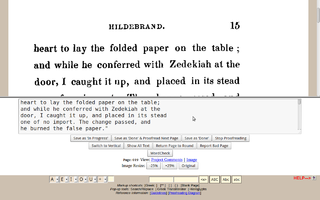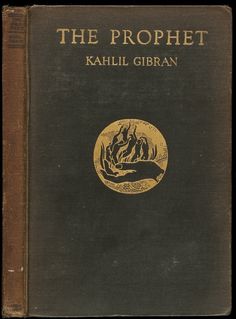See also
- Gutenberg press, the original European printing press
- Gutenberg (disambiguation)
- Gutenburg (disambiguation)
- Guttenberg (disambiguation)
Project Gutenberg is a volunteer effort to digitize and archive cultural works under U.S. copyright law.
Project Gutenberg or Gutenberg project may also refer to:

A copyright is a type of intellectual property that gives the creator of an original work, or another owner of the right, the exclusive, legally secured right to copy, distribute, adapt, display, and perform a creative work, usually for a limited time. The creative work may be in a literary, artistic, educational, or musical form. Copyright is intended to protect the original expression of an idea in the form of a creative work, but not the idea itself. A copyright is subject to limitations based on public interest considerations, such as the fair use doctrine in the United States.

Fair use is a doctrine in United States law that permits limited use of copyrighted material without having to first acquire permission from the copyright holder. Fair use is one of the limitations to copyright intended to balance the interests of copyright holders with the public interest in the wider distribution and use of creative works by allowing as a defense to copyright infringement claims certain limited uses that might otherwise be considered infringement. The US "fair use doctrine" is generally broader than the "fair dealing" rights known in most countries that inherited English Common Law. The fair use right is a general exception, that applies to all different kinds of uses with all types of works. In the U.S., fair use right/exception is based on a flexible proportionality test, that examines the purpose of the use, the amount used, and the impact on the market of the original work.
Project Gutenberg (PG) is a volunteer effort to digitize and archive cultural works, as well as to "encourage the creation and distribution of eBooks." It was founded in 1971 by American writer Michael S. Hart and is the oldest digital library. Most of the items in its collection are the full texts of books or individual stories in the public domain. All files can be accessed for free under an open format layout, available on almost any computer. As of 3 October 2015, Project Gutenberg had reached 50,000 items in its collection of free eBooks.

"Happy Birthday to You", also known as "Happy Birthday", is a song traditionally sung to celebrate a person's birthday. According to the 1998 Guinness World Records, it is the most recognized song in the English language, followed by "For He's a Jolly Good Fellow". The song's base lyrics have been translated into at least 18 languages. The melody of "Happy Birthday to You" comes from the song "Good Morning to All", which has traditionally been attributed to American sisters Patty and Mildred J. Hill in 1893, although the claim that the sisters composed the tune is disputed.

Distributed Proofreaders is a web-based project that supports the development of e-texts for Project Gutenberg by allowing many people to work together in proofreading drafts of e-texts for errors. As of March 2021, the site had digitized 41,000 titles.
Skynet may refer to:
A registrar is an official keeper of records made in a register. The term may refer to:
Project Gutenberg Australia, abbreviated as PGA, is an Internet site which was founded in 2001 by Colin Choat. It is a sister site of Project Gutenberg, though there is no formal relationship between the two organizations. The site hosts free ebooks or e-texts which are in the public domain in Australia. Volunteers have prepared and submitted the ebooks.

The Prophet is a book of 26 prose poetry fables written in English by the Lebanese-American poet and writer Kahlil Gibran. It was originally published in 1923 by Alfred A. Knopf. It is Gibran's best known work. The Prophet has been translated into over 100 languages, making it one of the most translated books in history, as well as one of the best selling books of all time. It has never been out of print.

Public Domain Day (PDD) is an observance of when copyrights expire and works enter into the public domain. This legal transition of copyright works into the public domain usually happens every year on January 1 based on the individual copyright laws of each country.
Star TV may refer to:
Project Gutenberg Canada, also known as Project Gutenburg of Canada, is a Canadian digital library founded July 1, 2007 by Dr. Mark Akrigg. The website allows Canadian residents to create e-texts and download books, including those that are otherwise not in the public domain in other countries.
Distributed Proofreaders Canada is a volunteer organization that transfers books into electronic format and releases them as public domain books in formats readable by electronic devices. It was launched in December 2007 and as of 2023 has published about 8,000 books. Books that are released are stored on a book archive called Faded Page. While its focus is on Canadian publications and preserving Canadiana, it also includes books from other countries as well. It is modelled after Distributed Proofreaders, and performs the same function as similar projects in other parts of the world such as Project Gutenberg in the United States and Project Gutenberg Australia.
Free content, libre content, libre information, or free information is any kind of functional work, work of art, or other creative content that meets the definition of a free cultural work, meaning "works or expressions which can be freely studied, applied, copied and/or modified, by anyone, for any purpose."

John Carter of Mars is the eleventh and final book in the Barsoom series by American writer Edgar Rice Burroughs. It is not a novel, but rather a collection of two John Carter of Mars stories.
Crown copyright is a type of copyright protection. It subsists in works of the governments of some Commonwealth realms and provides special copyright rules for the Crown, i.e. government departments and (generally) state entities. Each Commonwealth realm has its own Crown copyright regulations. There are therefore no common regulations that apply to all or a number of those countries. There are some considerations being made in Canada, UK, Australia and New Zealand regarding the "reuse of Crown-copyrighted material, through new licences".

Fair dealing is a limitation and exception to the exclusive rights granted by copyright law to the author of a creative work. Fair dealing is found in many of the common law jurisdictions of the Commonwealth of Nations.

The public domain (PD) consists of all the creative work to which no exclusive intellectual property rights apply. Those rights may have expired, been forfeited, expressly waived, or may be inapplicable. Because no one holds the exclusive rights, anyone can legally use or reference those works without permission.

Copyright infringement is the use of works protected by copyright without permission for a usage where such permission is required, thereby infringing certain exclusive rights granted to the copyright holder, such as the right to reproduce, distribute, display or perform the protected work, or to make derivative works. The copyright holder is typically the work's creator, or a publisher or other business to whom copyright has been assigned. Copyright holders routinely invoke legal and technological measures to prevent and penalize copyright infringement.

I'll Be Your Sweetheart is a 1945 British historical musical film directed by Val Guest and starring Margaret Lockwood, Vic Oliver and Michael Rennie. It was the first and only musical film produced by Gainsborough Studios. Commissioned by the British Ministry of Information, it was set at the beginning of the 20th century, and was about the composers of popular music hall songs fighting for a new copyright law that will protect them from having their songs stolen. Copyright scholar Adrian Johns has called the film "propaganda" and "a one-dimensional account of the piracy crisis [about sheet music in the early 20th century] from the publishers' perspective", but also highlighted its value as historical document, with large parts of the dialogue "closely culled from the actual raids, court cases, and arguments of 1900-1905."